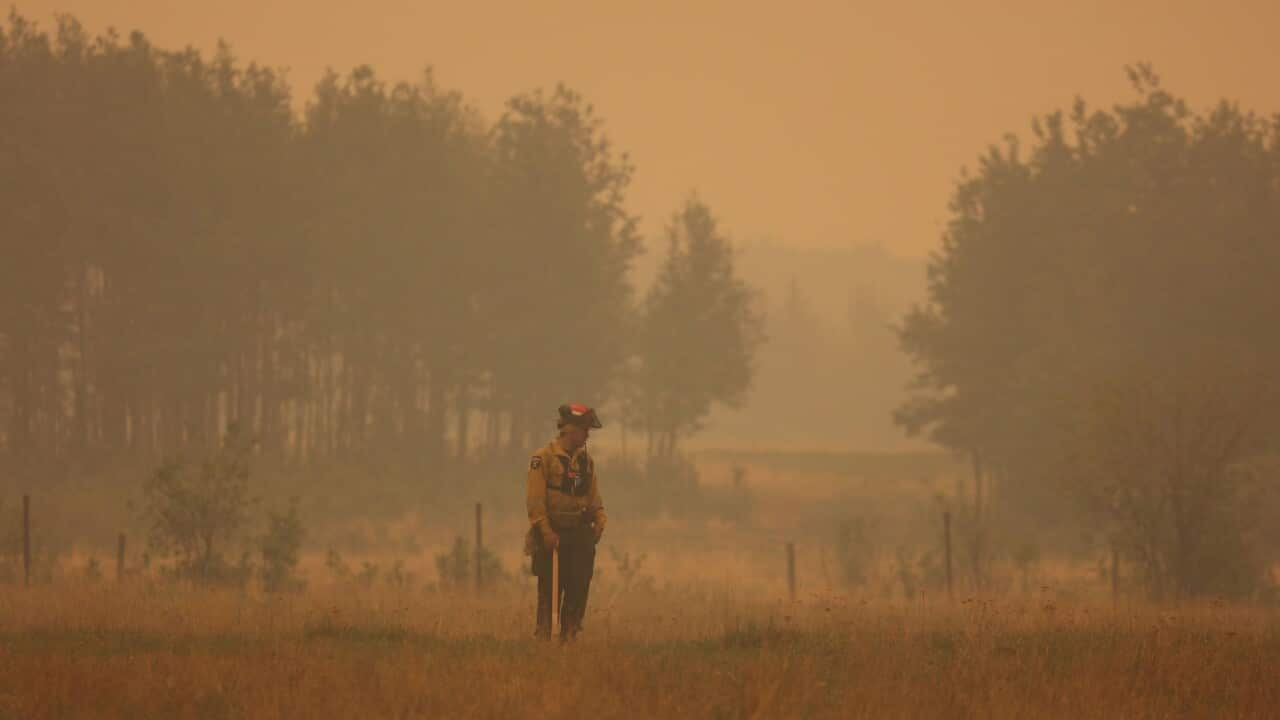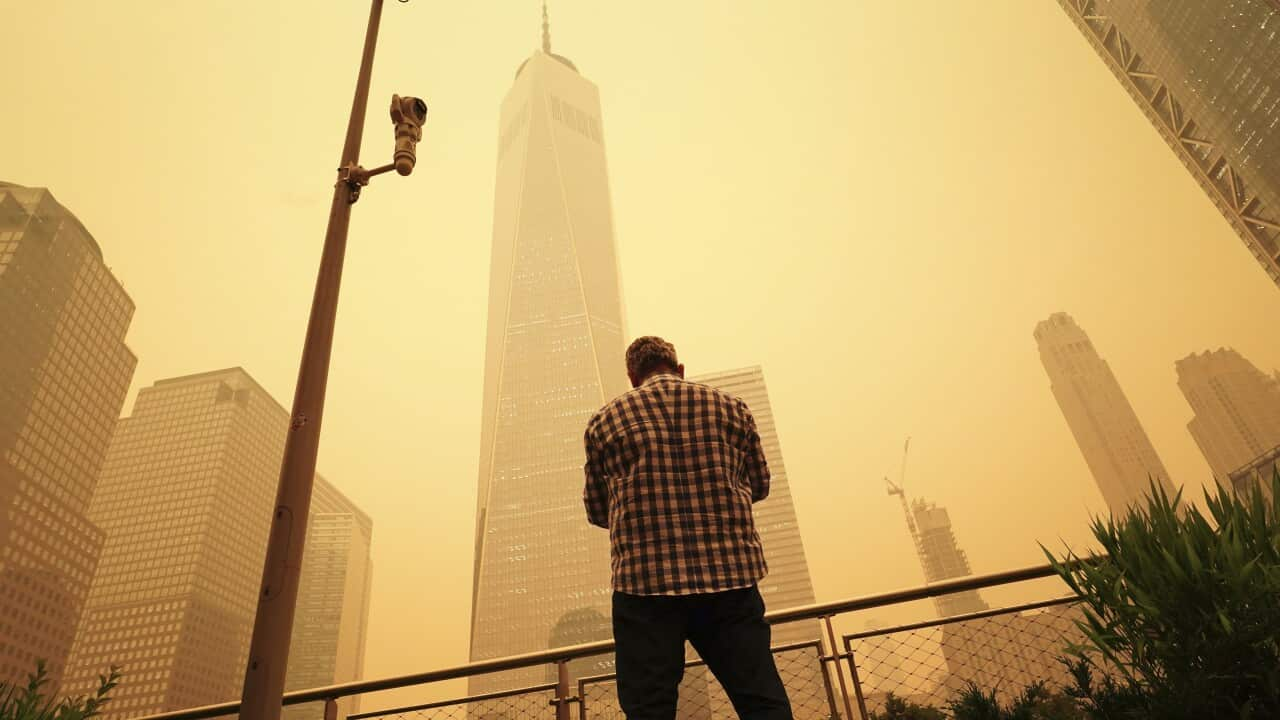Key Points
- Smoke from hundreds of fires in Canada has drifted as far as Norway.
- Officials are monitoring the impact on travel and air quality.
- Firefighters are also being flown in from South Africa, Australia and New Zealand.
Norwegian officials say smoke from Canadian wildfires that has enveloped parts of the United States and Canada in a thick haze is expected to pour into Norway.
Atmosphere and climate scientists with the Norwegian Climate and Environmental Research Institute used a forecast model to predict how the smoke would travel through the atmosphere.
The smoke has moved over Greenland and Iceland since 1 June, and observations in southern Norway have recorded increasing concentrations of aerosolised particles, the research institution said.
"We may be able to see some haze or smell smoke," Nikolaos Evangeliou, a senior NILU researcher, said.
"However, we do not believe that the number of particles in the air here in Norway will be large enough to be harmful to our health."
Hundreds of fires still burning
Kjetil Torseth, research director with NILU, said with "the increasing temperatures due to climate change, forest fires are likely to be more common and of a larger magnitude".
Allies from around the world have promised to increase their help to Canada in its fight against hundreds of blazes that have swept through the country in its worst-ever start to wildfire season.
Forest fires that have gathered strength in the past month have forced tens of thousands of people from their homes and sent a smoky haze billowing over a large swath of the US.
About 4.3 million hectares have already burned, roughly 15 times the annual average of the past decade.
More than 400 blazes were burning on Thursday - more than a third of them in Quebec, where Public Safety Minister Francois Bonnardel said no rain is expected until next week.
He said there have been no reports of injuries, deaths or home damage so far from the fires, but it remained unclear on Thursday when more than 12,000 evacuees from various communities would be able to return.
Warm, dry conditions are expected to persist across Canada in the months ahead.
On Thursday the Toronto District School Board, Canada's largest, rescheduled or moved indoors all outside activities, including field trips and local school events.
The fires have also impacted mining operations in Canada.

Smoke from hundreds of fires in Canada has resulted in air pollution readings that are breaking records. Atmospheric scientist Ryan Stauffer described the surface smoke pollution from New York to the D.C. region as unrivalled since events recorded in 2002. Credit: NASA Earth Observatory/NOAA
'Stark reminder'
In the US, smoky conditions sent asthma sufferers to hospitals, disrupted flights, postponed sports events and even pushed back a White House Pride Month celebration.
Officials have opened smoke shelters for people who are homeless or who might not have access to clean indoor air.
The US has sent more than 600 firefighters and other personnel to Canada in the past few weeks and has said more help is on its way.
US President Joe Biden said in a statement the smoke from Canadian wildfires in the eastern US was "another stark reminder of the impacts of climate change" and said cabinet officials were monitoring the impact on travel and air quality.
Help has also come in from South Africa, Australia and New Zealand.
European Commission President Ursula von der Leyen said on Thursday France, Portugal and Spain were also sending more than 280 firefighters to Canada.










